As more companies expand their brands internationally, you might find your marketing team overwhelmed by the sheer amount of content they have to handle and translate into multiple languages.
The latest translation industry research shows that 75% of consumers prefer to buy products from websites in their native language. Hence, it's no surprise that companies everywhere are trying to have a more localized marketing approach and enlisting agencies to help.
As localization needs soar, how do marketing agencies manage the translation of different marketing collaterals - all while staying true to each brand's voice and flavor? Luckily, there is a scalable solution that even internal marketing teams use today.
What are the translation challenges faced by marketing agencies?
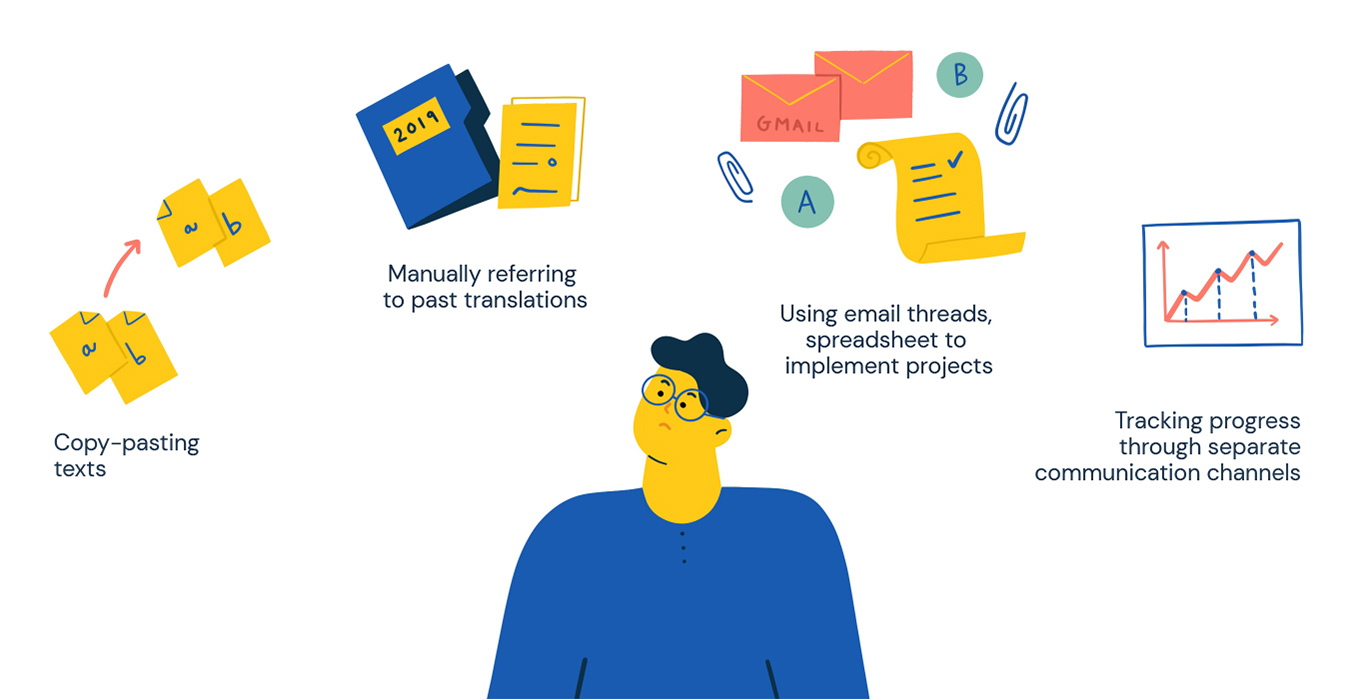
Since marketing agencies handle multiple companies at the same time, their primary challenge usually lies in translation management.
Even if there is some kind of content management system in place already, it isn't always equipped to streamline translations and the layers of people involved in the process.
As they say, bad software choices lead to half a billion hours wasted every year. In the localization context, companies often become over-reliant on manual administrative tasks, such as:
- Copy-pasting texts for translation between documents
- Manually referring to past translations to ensure language consistency
- Using countless emails, spreadsheets, and documents to implement each project
- Manually tracking the progress of different projects by reaching out to the respective parties
These operations slowly create a spiral of information that's difficult to break free from when content demands grow.
Why use translation software for marketing agencies?
The alternative to tedious manual operations is to use translation software with administrative capabilities, better known as translation management systems. Here are the potential benefits:
1. Translate content in different formats types quickly
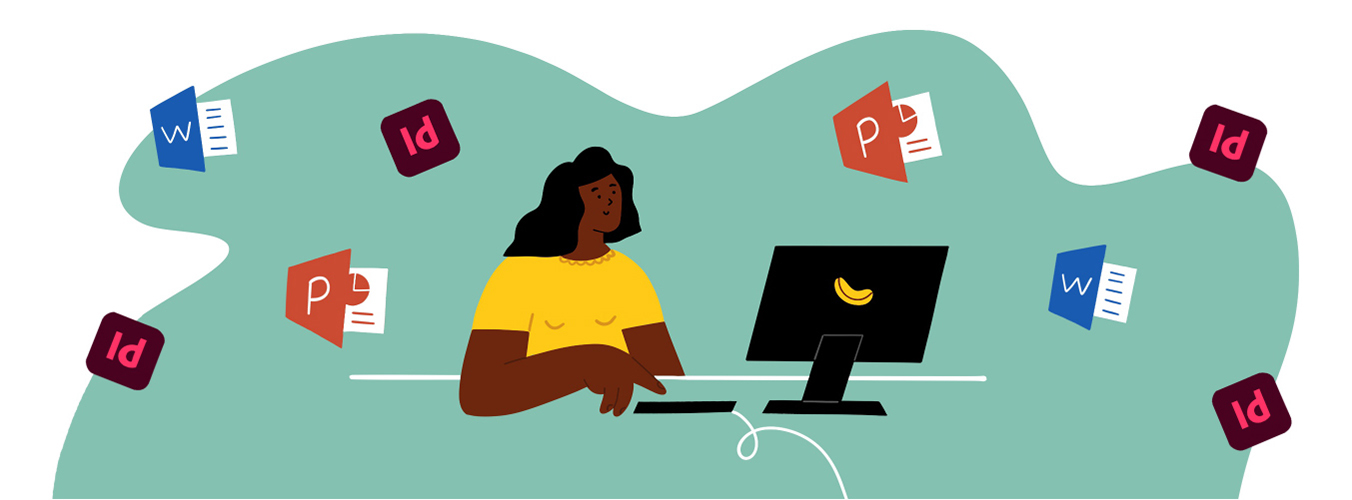
Whether you are translating a Word document, a PowerPoint slide, or an InDesign file, translation software enables you to translate diverse content formats directly on the platform without worrying about file incompatibility.
Here are some practical guides about how to translate Word documents, Excel Sheets, and PowerPoint slides.
The best part is that you can download a translated version of the original document - with all the design and formatting intact - once the translations have been approved. Your team only has to do a quick review before pushing the content for publication and achieving your client's marketing goals.
2. Improve translation quality and consistency
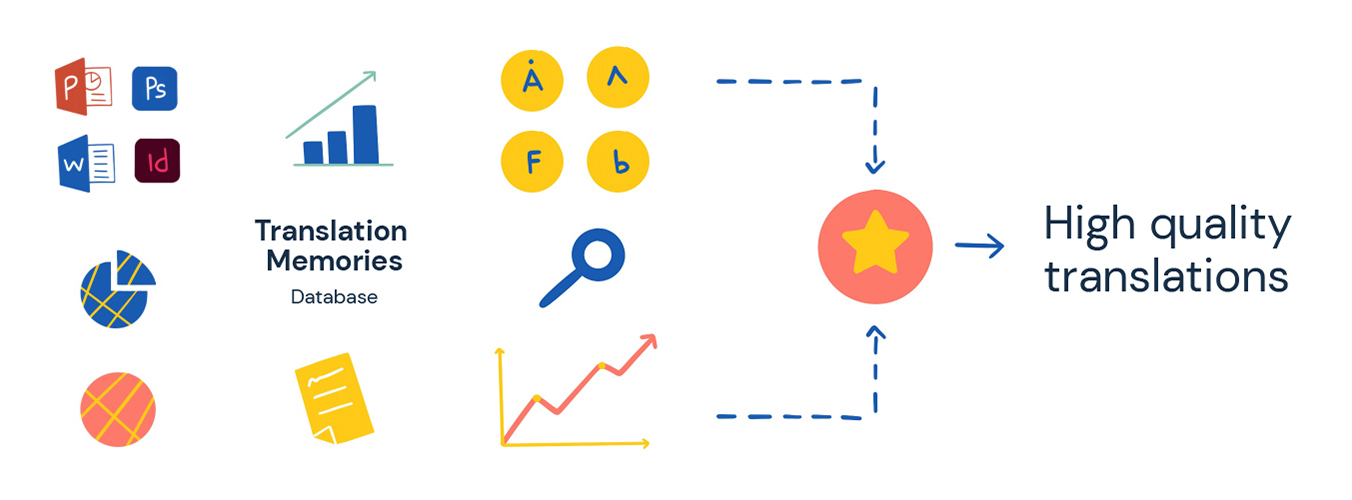
Producing high-quality translations for marketing collaterals is not only a matter of accuracy but also consistency. When using translation software, each company can establish their own database of translation memories that grows every time they translate more content and add to it.
Translation memory is essentially all of a company's language assets consolidated into a useful translation resource. By using it, you ensure that the output is always aligned with the company's branding, language style, and terminology even when the content format changes.
3. Prioritize translation of new content rather than repetitive ones
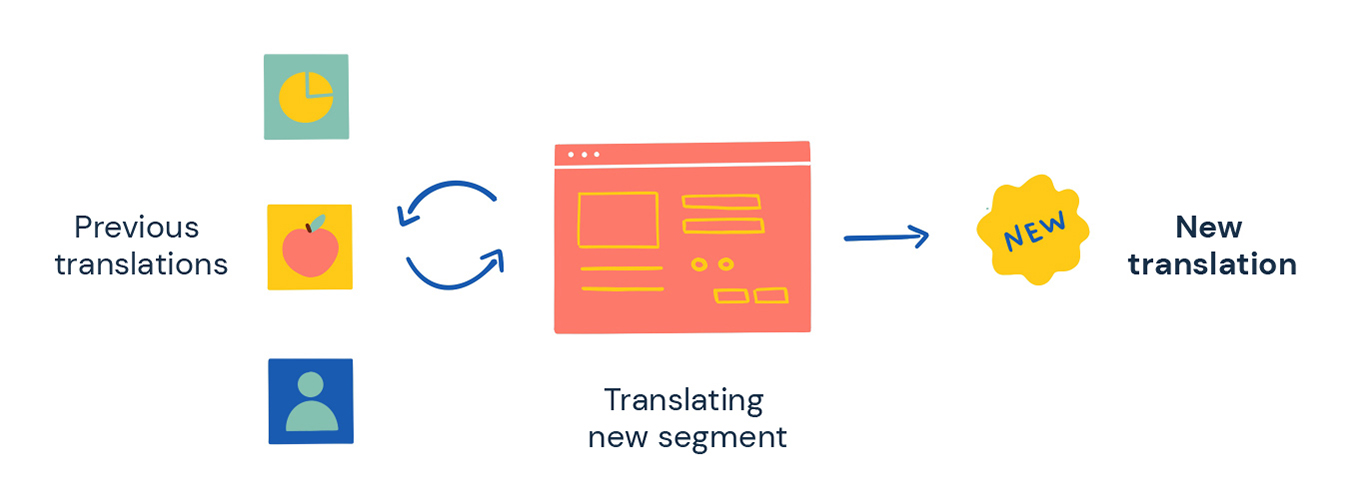
A defining feature of translation memories is that they help you search through your past work for similarities almost instantly.
It's how the translation software tool can pull up previously approved translations so you can use them in new projects. That way, you can focus your resources on translating segments that have never appeared in your older content.
4. Save valuable time and money spent on translations

Although getting a translation software tool will take up part of your budget, it drastically reduces the time taken to complete translations by automating repetitive tasks. On top of that, your team will spend less time on administrative operations, and instead focus on more productive work.
As a whole, translation software will help you eliminate the cost of delays, miscommunication, and unnecessary translation work.
5. Collaborate more easily with clients and translators
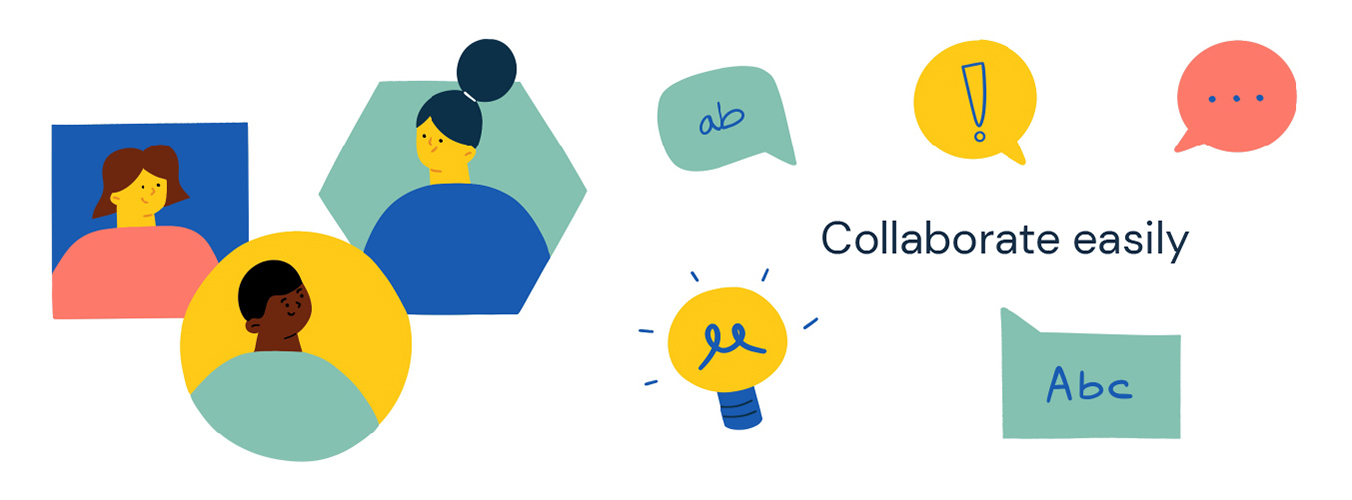
Your translation software tool also serves as a communication and collaboration platform for different project teams. This feature is crucial because you will likely have hybrid workflows involving internal and external team members, which change depending on the client.
With a translation management system, you won't have to rely on less connected channels like emails to ensure everyone is working on the right project and liaising with the right people.
6. Implement document changes more intuitively
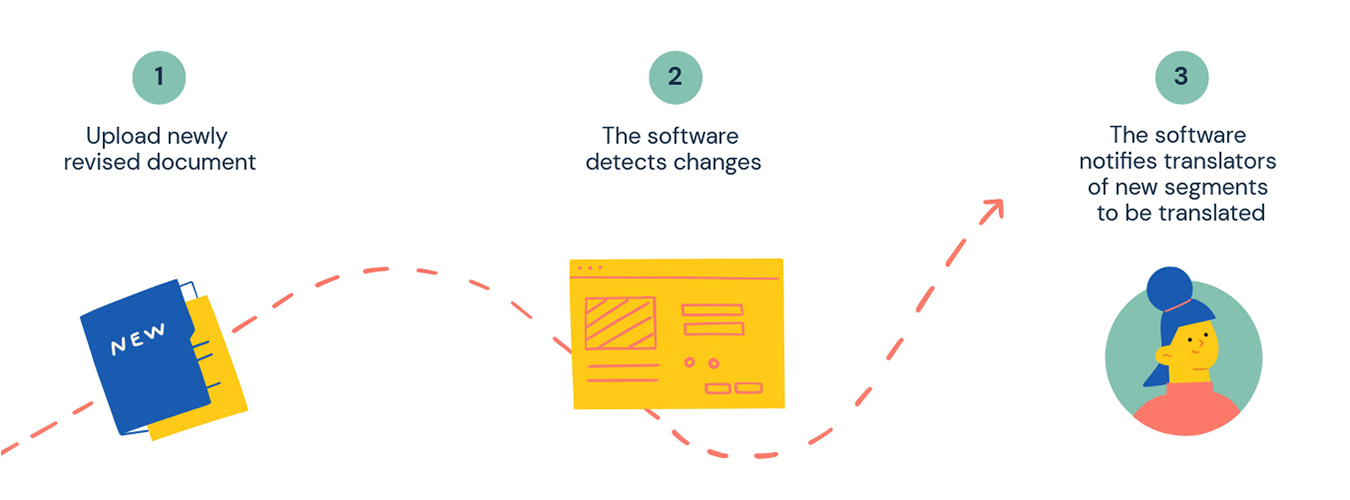
What if the client makes changes to the content halfway through a project? For some translation software like Redokun, this process is made much easier with a simplified revision system.
It takes just one step: upload the newly revised document for a specific project. Then, the software will automatically detect the changes and inform the people working on each language pair to translate the edited segments.
7. Connect with your existing tools easily
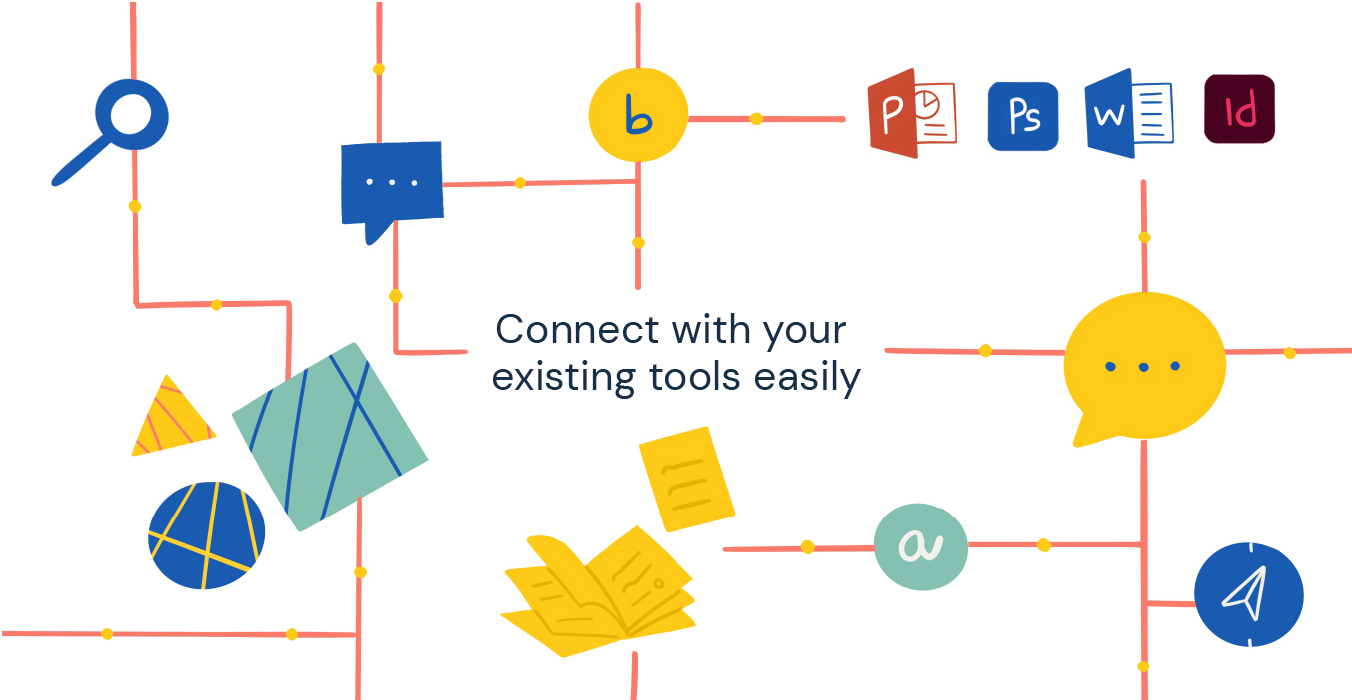
Translation software are some of the more versatile tools out there. Some people might be hesitant about using them because they're scared it would not flow well with their own tech stack or even their client's tech stack.
However, the top translation software on the market today offers diverse integrations. You can connect them to your content management systems, e-commerce platforms, and many more so that there is never a break in the flow of information.
Even if the people involved in the same project don't use the same systems, translation software also usually offers some form of import/export function. That way, you can easily transfer your translation data from one party to another.
Key Features of Translation Software for Marketing Agencies
If you're interested in exploring translation software for your marketing agency, here are the main features you should look out for to begin transforming your workflow digitally.
1. Team Management and Collaboration Features
Translation software bundled with this feature is commonly known as translation management systems (TMS). The feature is there so marketing managers can implement and keep track of multiple projects at the same time without hassle or confusion.
If your team or client prefers outsourcing the translations to external parties, you can easily invite them to collaborate on the same platform as well. In turn, they will receive access to the relevant company's language assets to help them accelerate their translation process.
On a larger scale, you can quickly create separate channels for the localization teams of different clients, and then further divide those into groups working on different language pairs to track their progress easily.
2. Translation Memories
With translation memories built into the software, you can start building up a knowledge base of translations that your clients have liked and approved.
In that case, why pay a translator to translate the same sentence twice, especially when consistent branding partly depends on consistent language use?
The good news is you won't even have to do much to start creating a translation memory database for yourself or your client. Upon project completion, most translation software would automatically save the output into your translation memories.
Furthermore, when you assign a person to translate new content, they will automatically have access to the relevant translation memories. They are provided in the form of translation suggestions as seen in this example from Redokun:
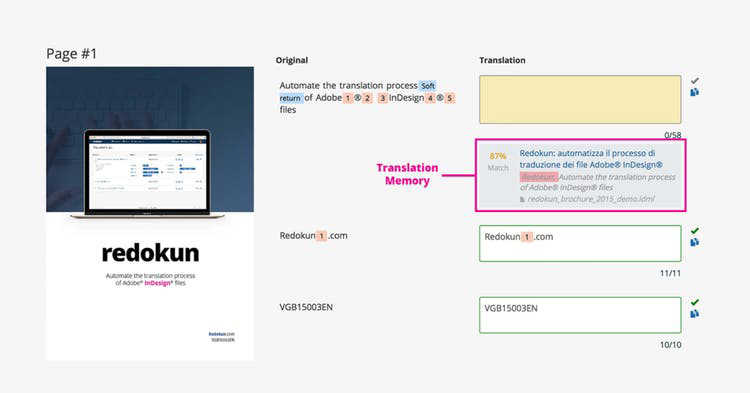
Here is a more detailed article on how translation memory software works.
3. Neural Machine Translation
Machine translation (MT) uses artificial intelligence to bring you instant translation suggestions. Most translation software would have machine translation engines integrated into them (usually from a third-party provider), where the most attractive advantage they offer is speed.
Your agency might cycle through loads of marketing collaterals daily but translating them isn't always a breeze, especially with long-form content or complex topics.
While the accuracy of machine translations tends to fluctuate, they are usually pretty spot-on for simple sentences. Even when they aren't, they can still help in other ways.
When your translator encounters a difficult sentence and is simply out of ideas at the moment, machine translation can give them some much-needed "inspiration" or useful insight into how a sentence could be translated.
Here is an example of how machine translation is applied on Redokun. Since our software integrates with Google Translate and DeepL (two of the top MT providers in 2021), your translator will see the translations suggestions from them while working on a document.
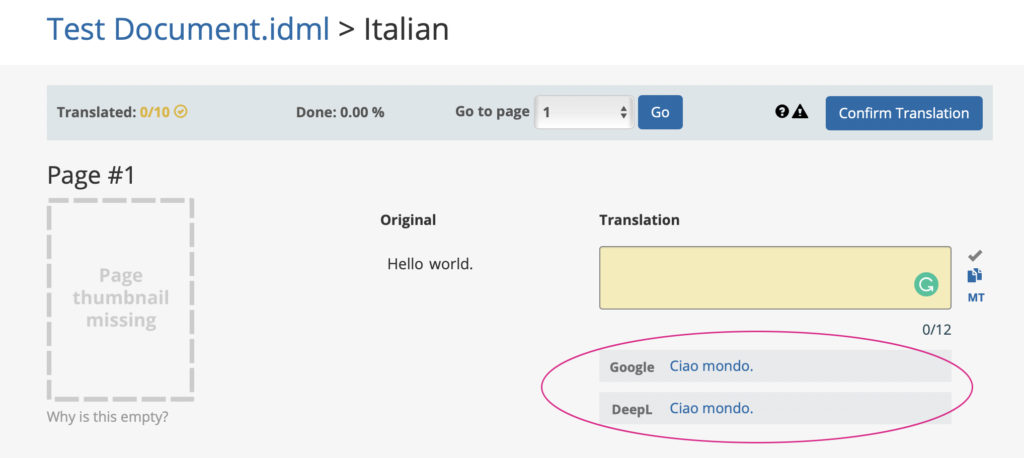
4. Automation
It goes without saying that the main reason any marketing agency would introduce new translation software into their workflow is to automate their processes so they can be more focused and productive.
Each feature we've explored above simplifies the tasks that would usually be handled by a person at different stages of translation.
- With project management features, the manager no longer needs to coordinate people, files, and to-dos through endless emails that must be organized with CC's and BCC's in mind.
- With translation memories, you no longer need someone to painstakingly search through your archives so you can copy-paste translations of repeated content into a new project.
- With machine translation, your translators can automate some aspects of their jobs, such as translating the easier segments in a large document.
- Last but not least, translation software that can support a variety of file formats and generate translated copies in their original formatting means your designer won't spend much time on producing collaterals for market.
What is the best translation software for marketing agencies?
While there are different flavors of translation software available, marketing agencies will benefit most from the type known as translation management systems. And Redokun is one such product your team could try today.
Redokun is a cloud-based translation management system designed to be simple yet powerful. It's important to choose software that's easy to learn and use, especially on the scale at which marketing agencies operate, so as to minimize the onboarding period.
Another highlight is that you can easily use Redokun to implement hybrid workflows. Whether you're working with your in-house translation team or a translator provided by your client, you can grant them access to the tool and relevant files by sending them an email invite via Redokun.
Apart from that, one of the biggest challenges in marketing localization is the revision process, especially when your client request last-minute changes to a project.
Redokun simplifies the process of applying document changes to all ongoing translations is simplified. You'll only need to upload the new version of the source document to keep things running.
These are just some of the top features that our clients enjoy at Redokun. If you have other options in mind and need some help deciding, here's an article on how to choose the right translation software for your company.
Conclusion
Translation software is essential for marketing agencies because it provides a scalable, flexible solution to meet ever-growing demands for localization.
Click here to start a free trial of Redokun and discover how you can start transforming your translation workflow today.
https://redokun.com/